A Deep Love for Children, Crushed
Couple Sara Jafari and Rasool Fallah created a daycare center aimed at providing a nurturing and loving environment for children until the rug pulled from under their feet, leaving them lost and hopeless.
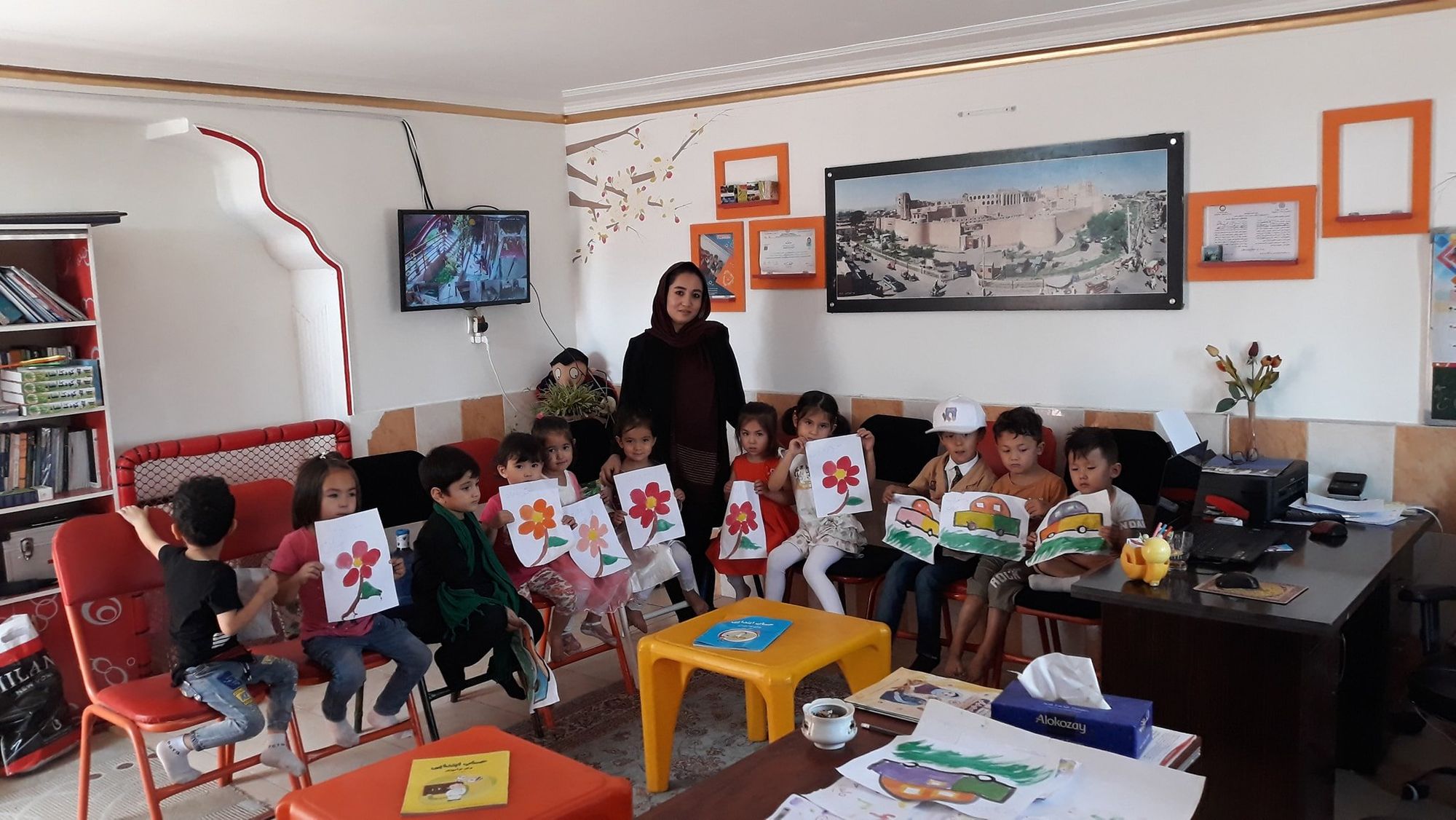
Written by Mohammad Reza Naemi
KABUL, AFGHANISTAN — For the past yefar Sara Jafari has been stuck at home, a harsh year that has made her feel like a prisoner. Her only dream was to create a future filled with passion and motivate and inspire the next generation, instead, she finds herself weeping over memories of the children she cared for and concerned for their future.
Ms. Jafari, a 30-year-old with a bachelor's degree in midwifery. Before the collapse of the previous government, she managed a daycare center called "The Mahd-e Vizha (The Special Cradle) Daycare." Her dream of creating a safe environment where children could be happy came true when the center opened its doors in 2018 in the Dasht-e Barchi neighborhood of Afghanistan’s capital, Kabul.
The following is Ms. Jafari’s story in her words:
When I was in college and my husband Rasool had just lost his job, we made the difficult decision to start a daycare. It was one of several start-up ideas we had in mind, but our financial situation was dire, and I was pursuing a degree at a private university paid for entirely by myself. To fund the daycare, we had to sell our car. My motivation for starting the daycare came from my daughters' dissatisfaction with their previous daycare. I wanted to create an ideal place not only for my children but for many others.
Starting any business is challenging, and opening a daycare was no exception. The process included obtaining a license, completing paperwork, finding the right location, paying the initial rent with our limited finances, and creating a welcoming environment for customers. During the license application process, representatives from the Directorate of Kindergartens would come to inspect and survey the premises and provide instructions. However, they spoke about the standards for government-approved kindergartens as if we were living in Europe, while I had seen the poor conditions in government-run daycares where these rules were not being followed. It was very frustrating!
Despite these challenges, our goal was to create a daycare that was much better than those run by the government, and we accomplished this through our unwavering determination and tireless efforts. We were proud to have gained the approval of the deciding committee.
The success of the Mahd-e Vizha Daycare was not solely driven by the desire for profit. Instead, it was founded on a deep love for children, and this motivation helped the daycare earn its deserved place among the people in the neighborhood.
Caring for children requires patience, love, and enthusiasm. I learned this lesson early in life since I was the eldest of seven siblings, and I took care of my younger brothers and sisters with dedication. This experience taught me how to build a friendly rapport with children quickly, no matter the situation. When we decided to start our own business, my heart's desire was to serve and love children, even if only a few, and to provide them with a safe and nurturing environment where they could spend time with kids their own age and create memories.
A crucial requirement for working at Mahd-e Vizha was the ability to demonstrate compassion for the children. When hiring a teacher, we first checked their ability to do so, not their need for income. Our teachers loved their work so much that even on days off, parents brought their children to the daycare or called to say their child missed being there.
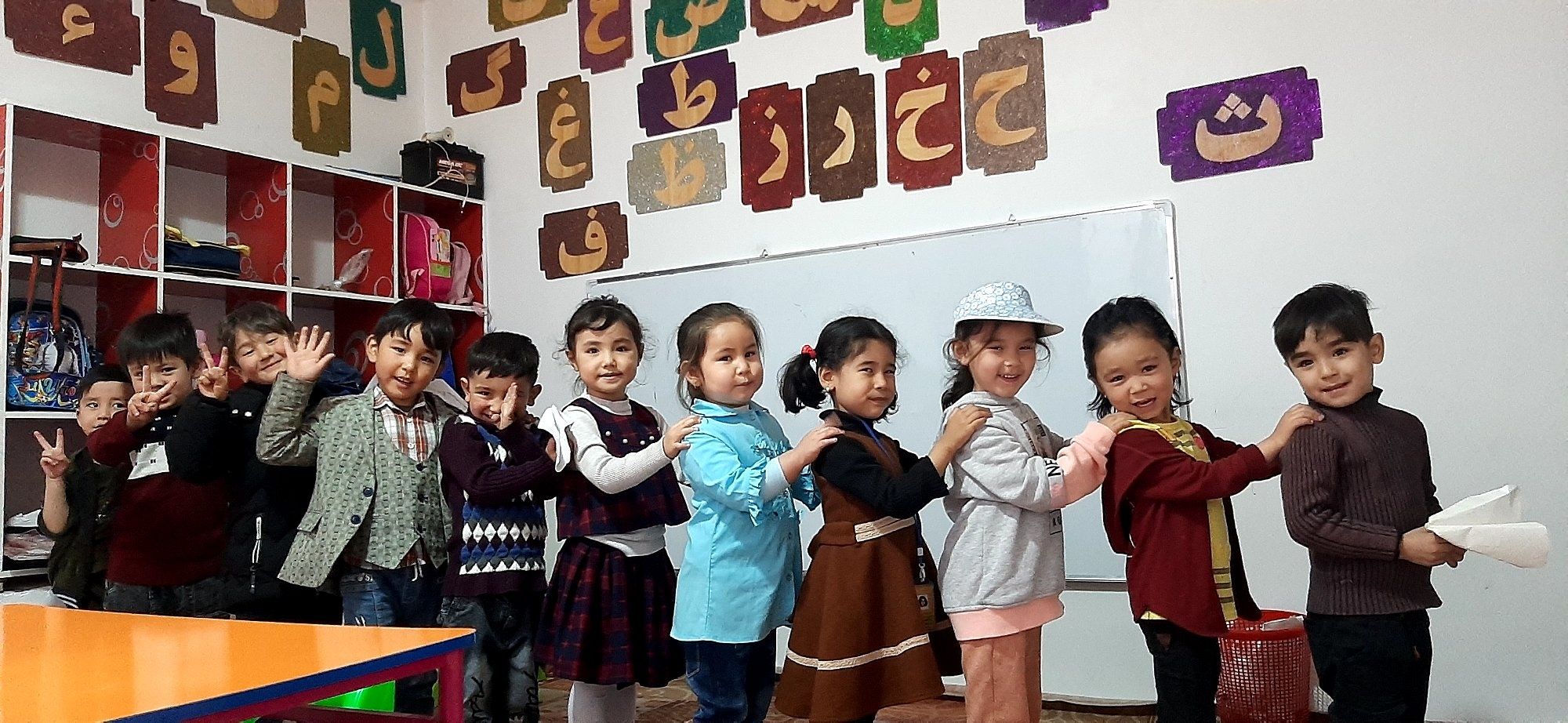
During my first three months of operating Mahd-e Vizha, we welcomed over 60 children and influenced many others with our programs. Unfortunately, due to the limited open space and the number of rooms, the directorate restricted us from accommodating more than 60 children at a time.
Nonetheless, the warm welcome and positive response from the community encouraged me and my colleagues to expand our facilities. We imported new toys from neighboring countries and hired ten additional employees after three months. Our income was mostly invested back into the daycare, improving the equipment and facilities to provide the children with a better learning and play environment.
My husband and I put our hearts and soul into creating a safe, secure, and happy space for the children. We worked day and night, oftentimes until very late. We were busy painting, designing the environment, and installing play equipment. We aimed to use colors and drawings that would elicit positive feelings and create tranquility in children's minds.
Whenever I recall these happy moments filled with inspiration, I cannot help but feel emotional and momentarily forget my unpleasant emotions. However, as I return to the present, I cannot stop crying, knowing how much effort we put into making the kindergarten a wonderful learning space.
While preparing the daycare, a mother asked to enroll her son, but I explained that enrollment had not yet begun and I could not take on the responsibility of her child. She insisted that her son loved the place and begged me to take him in and treat him as if he was my own child. Eventually, I agreed to take care of Parsa every day from 7 am to 5 pm. After a week, Parsa didn't want to leave and cried. I let him stay overnight, and cooked dinner for them.
The property we had rented for the daycare center had 10 rooms, with a 32,000 Afghanis ($395.55) monthly rent. The center was open from 7 am to 5 pm, with some parents dropping their kids off as early as 5 am and picking them up late in the evening. Educational programs began at 7 am and continued till noon. Full-time kids [those staying for the full day] would be served lunch and provided a place to rest in addition to other activities.
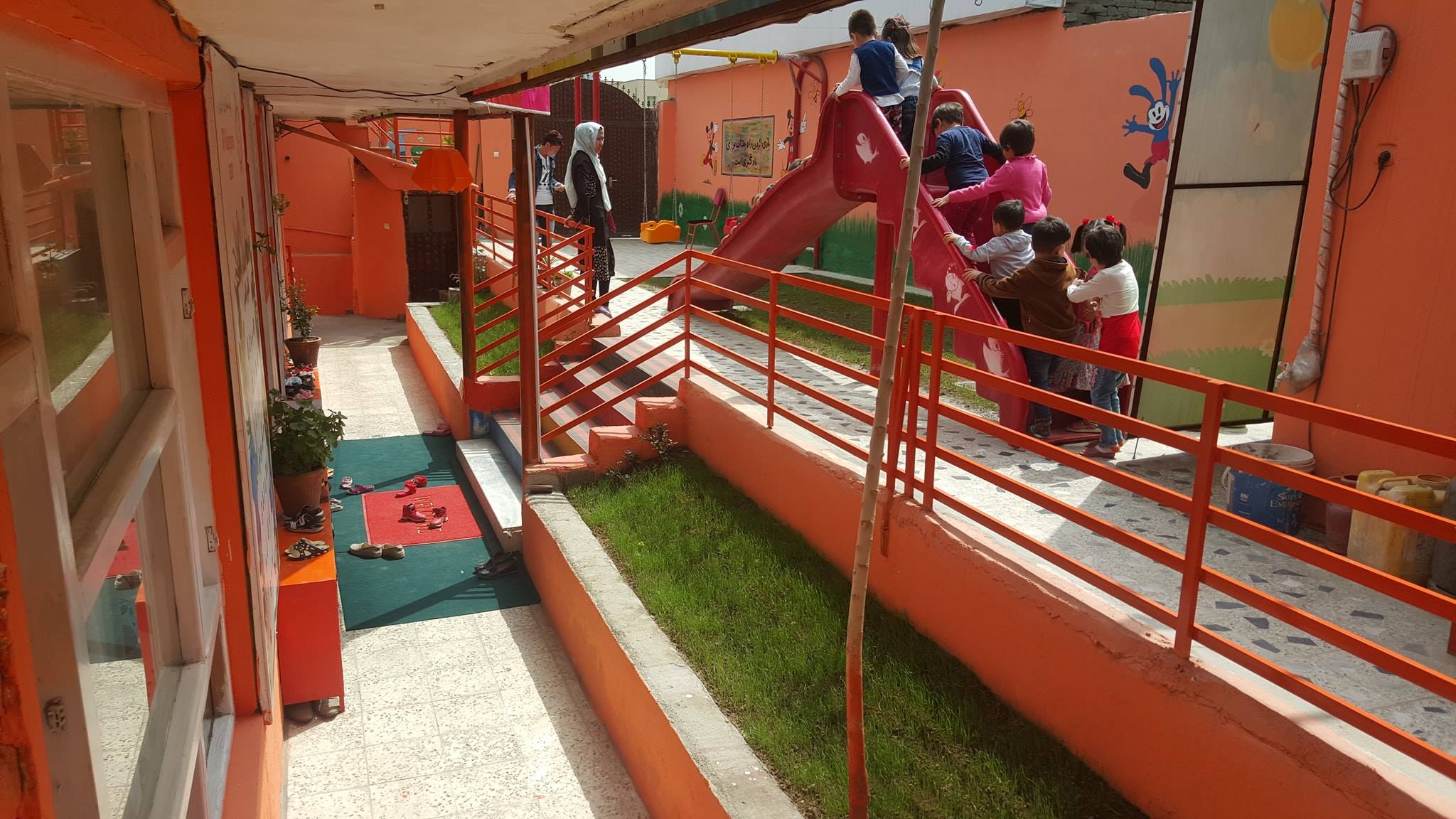
We divided the kids into four groups based on their age with a different curriculum for each group. Subjects included math, English, Dari, Quran, poetry, painting and drawing, senses of touch and hearing, social studies, and life skills. Our nursery often consisted of 12 infants alongside two teachers and one assistant. The four other classrooms consisted of between 12 to 15 kids each.
On the morning of the collapse [the fall of the previous Afghan government on August 15, 2021], I was set to defend my thesis and handed over the responsibility of the daycare center to a friend whose children also attended it. The stress and pressure of the thesis, coupled with all the effort I had given throughout the four years of my studies had wiped the rumors of collapse from my mind.
I finished defending my thesis that morning at 10 and came rushing back to the center. In celebration, I brought back some sweets for the children and teachers. We were busy, hastily devouring the sweets when a hard knock at the gate startled us. I was really scared and went to open the gate myself. One parent with two children in the kindergarten was repeatedly saying, “Please bring me, my children!”
I was both scared and angry.
“What happened? What are you doing?” I asked her.
“Kabul has fallen!” she said.
I didn’t say another word and was frozen in my spot for a minute, it was like the world had collapsed on me. Despite the August heat, my body went totally cold. I didn’t know what to do.
These innocent children didn’t even know what was happening, or why they were suddenly being taken away from their friends. I found myself wondering, ‘God, what will happen, will all these efforts turn to dust and mean nothing?’
I didn’t have an answer for any of my questions and there was no one else that could answer them either. I burst into tears at that moment. Rasool tried consoling and comforting me, telling me that everything will be alright even though I knew he felt the same.
“Don’t worry, this is not the end of the world, life goes on. It doesn’t matter what regime takes over, we will continue the work. At least there was no fighting, if so, people would’ve died,” Rasool kept telling me.
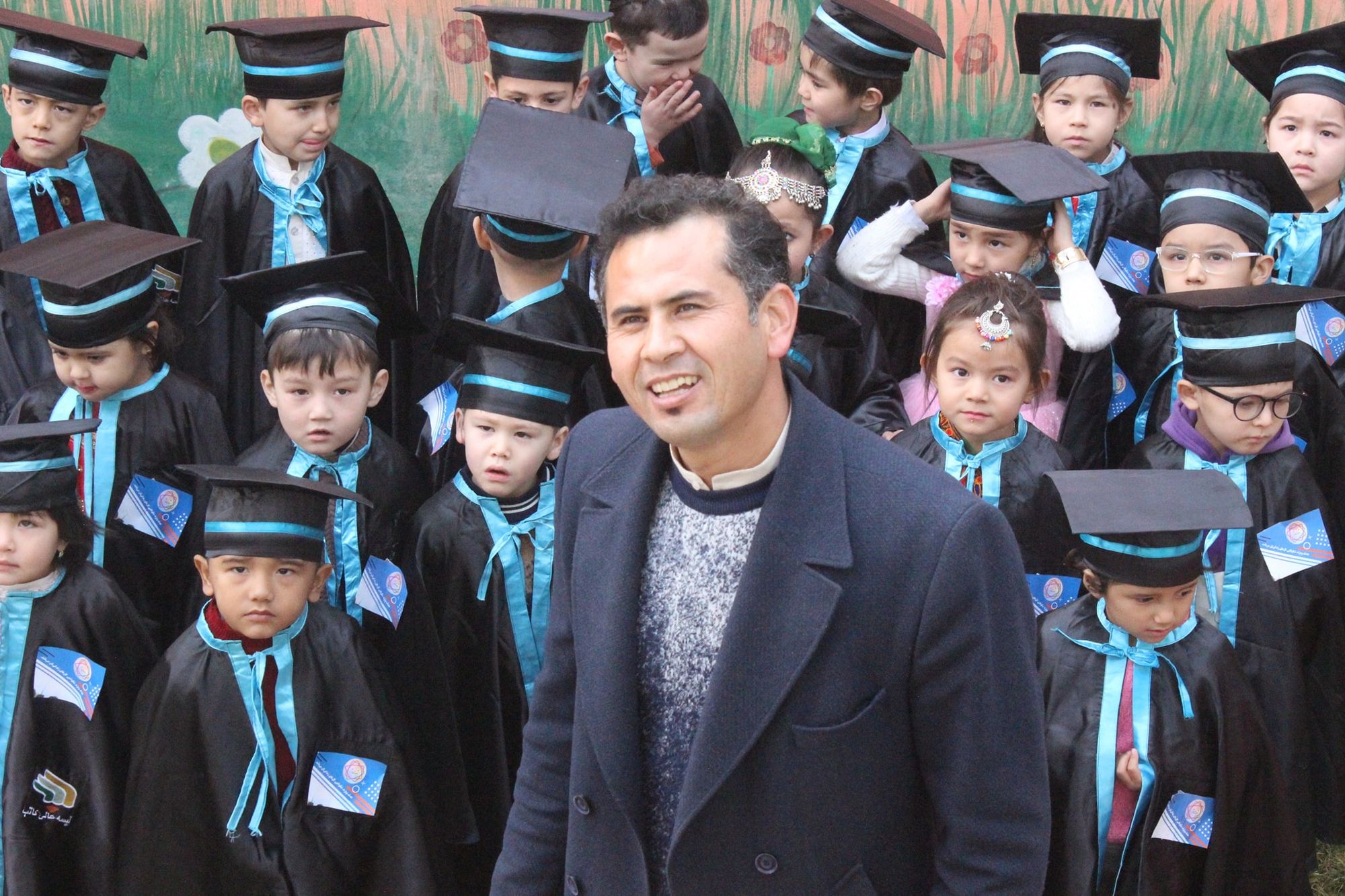
Moments later I recovered from the shock and went to confront the crying mother. I raised my voice telling her, “Yeah, it’s fallen, so what? Be quiet, you are scaring all of the kids!”
I told the watchwoman to get her kids; when they left, I locked the door and went back inside. The children that had heard the shouting were frightened but a little playing around got them to be happy as if nothing had happened. There was peace again, but the teachers were mumbling between themselves.
“That woman had gone crazy, I was just outside and there was nothing going on there,” I told them [the teachers.
Another half an hour passed by before another round of knocking on our gate. It was parents who had come to pick up their children and all were repeating the same news. A phone call followed asking for a couple of children to be ready to go so the parent on the way doesn’t have to wait.
That day, a sense of darkness overshadowed my dreams, and with each child that was taken away by their parents, a piece of my soul was lost.
In those tense moments, all that occupied my mind, and still occupies it, are the collective efforts of my colleagues and I, all endured in the pursuit of making our vision come true.
After the fall, until things became clear, everyone was confused and terrified. Almost everyone heard about the [evacuation taking place at] Kabul airport. We were also willing to let go of everything we had including the kindergarten with all of its equipment, saving our lives and the lives of our kids. We went to the Kabul Airport twice during the evacuation, only to return home disappointed. Once the situation gradually cleared, we decided to continue working.
I don’t remember exactly, but I think it was 40 days after the collapse when a doctor visited the daycare with her 2 boys. She said that the Taliban had told her that female doctors were allowed to work and she was happy about it.
Around nine or ten kids returned to the daycare after a long hiatus and I resumed work alone just like the first days the daycare center opened. However, I had no hope and I lacked the motivation to dedicate myself to caring for the children and could not spend even a moment managing the daycare.
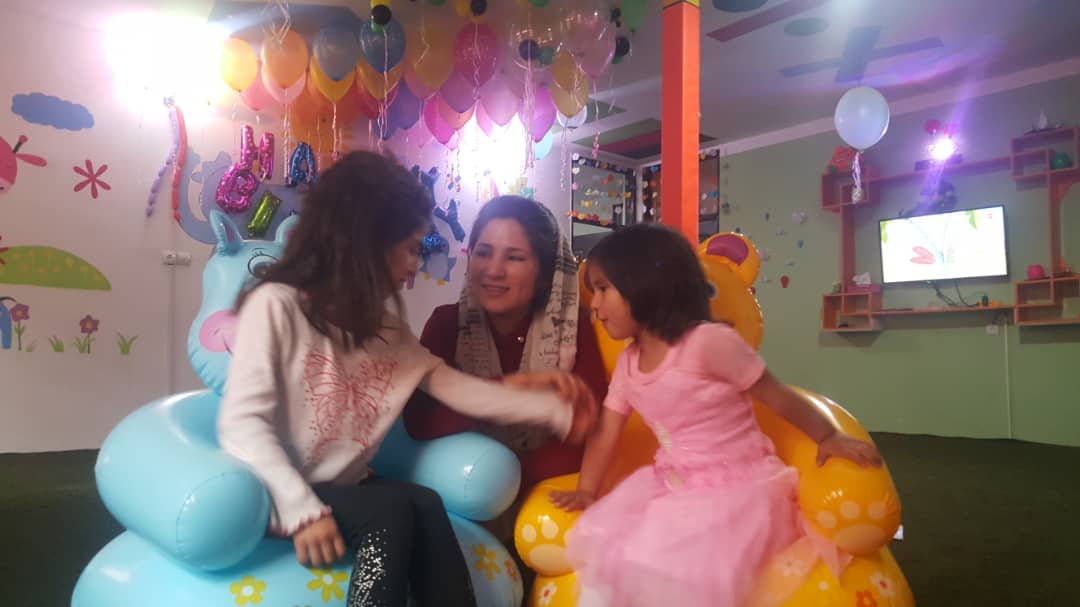
Moments were hardly passing yet I did my best not to transmit my feelings to those children and asked for help from my daughters. I thanked Allah for having had my daughters, but I pitied them for going through such a situation.
None of the other kids returned, and parents were no longer knocking at the gate, or visiting the office to enroll their children in the daycare. In addition, Taliban officers in the area visited the center and warned that our operation is against Islamic values. I couldn’t tolerate the situation anymore and depression took over.
I told the parents to consider a new daycare for their kids starting next month. The women refused to pay for the month that I had taken care of their children.
Mahd-e Vizha Kindergarten had a range of activities beyond day-caring and teaching children. We held educational sessions and seminars for parents and employees and offered capacity enhancement training for teachers and caretakers. The kindergarten engaged in philanthropic and voluntary activities, particularly for orphan children and children of the National Army. We accepted children that other daycares wouldn't, including those with disabilities. Fees were charged, but discounts were given to those in need. After the fall of the previous government, the center struggled to continue operations and we eventually had to close our doors.
Feeling unsafe and under pressure, my husband emigrated to a neighboring country. Meanwhile, the tools and equipment we had so carefully selected for the daycare center sat gathering dust. But the equipment is not the only thing gathering dust, the dreams and hopes of my colleagues and I are also getting buried under that dust and dirt as well.
I am left in a world full of uncertainty. I don’t even know what to do for my own daughters. Kabul; a city full of life a year and a half ago–despite all of the security threats–has been dominated by the walking dead where everyone is playing a game of survival.
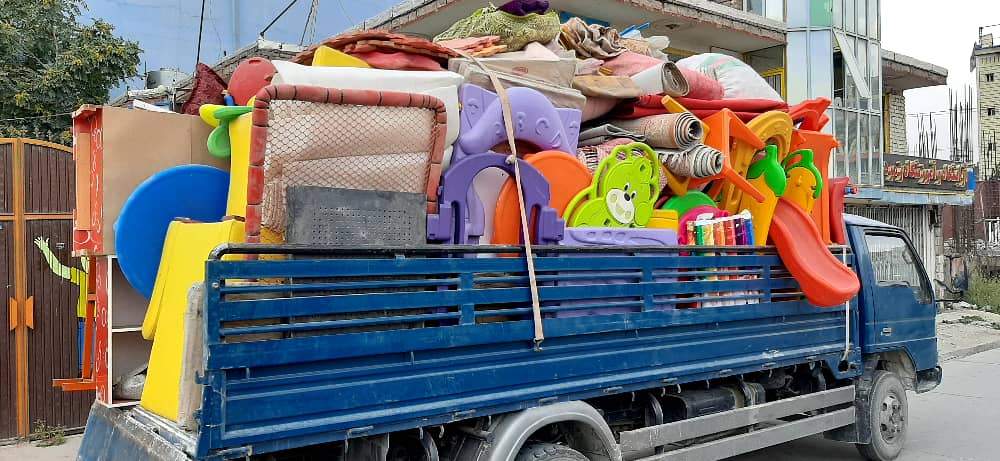
Alive-in is a not-for-profit media agency that mentors journalists from underrepresented communities to increase local and national understanding.
If you are able to support our work financially, please click the button below.
